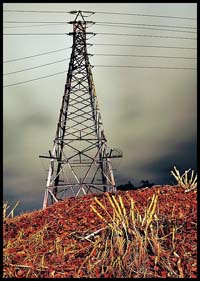Vic audit slams smart meter roll-out

Trials carried out on the technology for Victoria's massive smart meter roll-out failed to provide "reasonable assurance" on its viability, according to the Victorian Auditor-General in a report slamming the project.
Victoria planned to have meters rolled out to 680,000 customers by 2013, with the major electricity players already announcing partners including UXC, Accenture, GE, Motorola, Unwired and Logica. Costs for the roll-out would be recovered via increased prices for consumers.
Yet the Auditor-General Des Pearson wasn't convinced that the technologies the industry is preparing to roll out was going to work in practice, after trials which he believed were badly handled.
"For six of the 11 technology candidates that actually completed the trials process, all technologies were assessed as requiring further technical development," his report said. "The generally poor showing of [technologies] under trial raises issues about an unexplained anomaly, namely why the commitment to the [roll-out] continued to be recommended, or at least why the technical vulnerabilities were not explained in any great detail in the advice."
The auditor-general believed that some of the technologies were so immature as to not have warranted extensive testing. According to the state's Department of Primary Industries, which has oversight of the project, the testing cost the Victorian Government $6 million.
In addition, the trials weren't carried out properly, according to the report. "The [trials working group] had difficulty developing criteria for the department-sponsored trial to the extent that it agreed that '...success criteria should only be identified and described in broad terms until further results of trials/testing are known'. In fact, the trials' success criteria were not agreed until four months after the trials started," the report said.
The test procedures couldn't show if the technology met the requirements, the auditor-general continued, with assessment approaches not representing mature practice. Also, an inadequate number of staff had been allocated to the project, the auditor said, leading to a distinct lack of documentation.
The auditor-general admitted that there had been additional trials carried out in 2008 and 2009, but said there was no documentation for those trials. The report recommended that the department obtain assurances "without delay" from the electricity retailers that the technology is capable of delivering functionality.
The Department of Primary Industries wasn't happy. "We find the report disappointing and of more limited value to the [project] than we had hoped," the response ran. It said that the industry had incentives to make sure its technology worked and the government becoming involved would only expose it to risk. The response also pointed out that one technology had performed in trials.
The auditor-general refuted that the department shouldn't become involved because it might gather risk to itself, saying that the department should be more than an observer in the project. "It is a truism in the public sector that while responsibility can be delegated, full accountability for achieving intended outcomes cannot be," he said.
Technology wasn't the only problem the auditor-general found with the program. "The [project] has not used the checks and balances that would ordinarily apply to a major investment directly funded by the state," the report said. "There have been significant inadequacies in the advice and recommendations provided to government on the roll-out."
It pulled apart the economic cost-benefit analysis, saying assumptions were false and that benefits might not be as high as believed. The auditor-general also believed that consumers would have to pay more than the department's estimate of $40 to $50 a year in metering costs. According to the report, one retailer recently said the costs could be as high as $100 to $150 per year.
"In order for consumers to benefit from the cost savings [incurred by the distributors], the distributors will need to pass on the savings through to retailers who will need to pass on the savings subsequently to consumers. If this doesn't happen, then the benefits may not accrue to consumers who then ultimately fund the implementation costs," the report said.
The department countered that competition and regulation could keep cost rises in check and argued that the report did not consider that the benefits to consumers would not only come from cost reductions but also from service improvements. It warned the auditors of taking studies carried out by stakeholders at face value.
The report recommended that the department carry out a new cost-benefit analysis, that it commission a review by the Department of Treasury and Finance on the project, that it use risk management guidelines, talk more with stakeholders and engage the regulator. The department agreed in principle with the recommendations, but not for the reasons the auditor gave.
